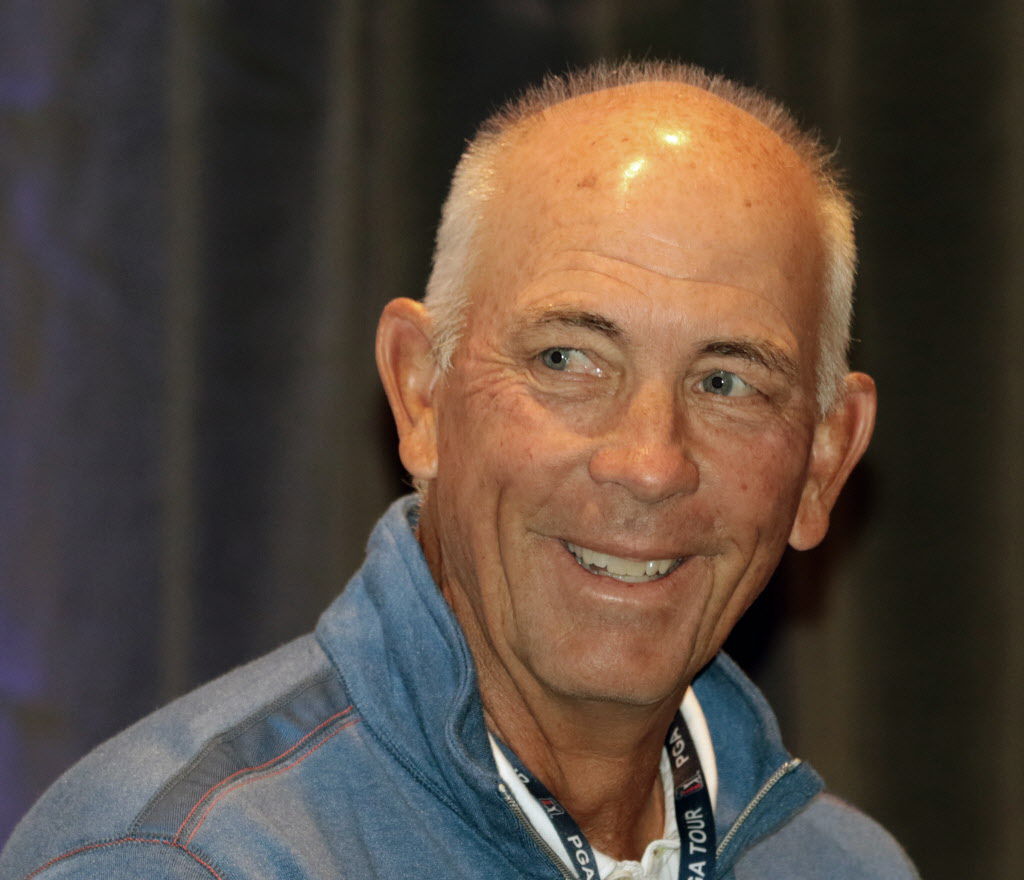As a golfer, Tom Lehman is trained to always think about the next shot or the next big tournament.
Lehman, 58, did something different as he prepared for Friday’s first round of the Cologuard Classic. He looked back.
It was April 1995, and Lehman was getting ready to play The Masters when he noticed all was not right. He started taking Advil for a sore knee, something he typically didn’t do. Then, it all changed in an instant.
“On Wednesday morning I developed serious symptoms, which I didn’t know at the time but were very strong symptoms of having some kind of colon issue, specifically colon cancer, which a tremendous amount of bleeding, tremendous amount of bleeding, very scary,” said Lehman, Thursday in a press conference.
Lehman, who was 36 at the time, proceeded to play that week and the following week at Hilton Head before heading home to have a colonoscopy.
Lehman scheduled a doctor’s appointment on the advice of his brother Jim’s father-in-law, who was a doctor at the Mayo Clinic.
The doctor gave Lehman some good advice.
“I’ll tell you when it’s time to worry and now is not the time,” Lehman recalled him saying. “(It) put us at ease a bit knowing that nothing crazy was going to happen over the next two weeks.”
Lehman was diagnosed with Stage 1 colon cancer and went to the Mayo Clinic in Minneapolis for treatment. There, he met Dr. David Ahlquist, the co-developer of the technology used in Cologuard.
Lehman is now cancer-free.
Lehman went on to have one of his best years as a golfer in 1996, winning the Open Championship and tying for second in the U.S. Open. He was the leading money winner that year and took home the PGA Golfer of the Year award, the Vardon Trophy and the Byron Nelson Award.
Thursday, Ahlquist and Lehman were face-to-face for the first time in 23 years.
“We have not connected until now and it felt like a homecoming,” Ahlquist said.
“It’s great that he’s telling his story to increase public awareness.”
Doctors typically recommend colonoscopies starting at age 50.
Advocates like Lehman and the executives behind Cologuard are trying to boost the number of cancer screenings. Currently, only six in 10 people age 50 and older are screened for colon cancer, said, Kevin Conroy, Chairman & CEO, Exact Sciences, the company behind Cologuard.
“People don’t want to go through something as invasive and time-consuming as a colonoscopy,” he said.
Cologuard is an at-home cancer-screening product. Developers say it detects 94 percent of colon cancer, the same percentage as a colonoscopy.
While it is unusual to be diagnosed with colon cancer younger than 50, it does happen. Two survivors with Tucson connections — Justin Hughes and John McLeod — fall in this category. They golfed with Lehman in Thursday’s pro-am.
Hughes, a Tucson native and UA grad, was diagnosed with Stage 3 colon cancer in 2014. Hughes underwent chemotherapy and radiation before surgery, then another six months of chemo.
“I am standing here with no evidence of the disease,” said Hughes, who golfed while wearing his UA gear.
“From start to finish it was about a year. The point to drive home is early detection is the key; something I didn’t do. I’d like to have people learn from my experience.”
McLeod, the father of a UA graduate, faced Stage 4 colon cancer. His symptoms appeared on a trip to Ireland and Scotland and he shook it off as eating too much junk food and drinking too much Single Malt Scotch.
When he got home he had a colonoscopy and they found a 7- centimeter lesion and 20 tumors in his lungs and liver. He’s had half of his left lung, one-third of his liver, and half of his colon removed.
“I’m the reason people should get early screening,” he said. “I didn’t know that you are at a higher risk for cancer if your parents had polyps. Few people know this. Once I was diagnosed, my three siblings went out and got screened. My big message: ‘I’m not going quietly.’”
With early detection of colon cancer, doctors say, nine of 10 people survive. Otherwise, only one in 10 survive.
Lehman, the Tucson tournament’s defending champ, knows he is lucky.
“Early detection combined with great care saved my life,” he said.
“There’s a synchronicity in life, I think. Your big toe hurts, you take Advil, you find out you have cancer. That big toe having pain saved your life.”





